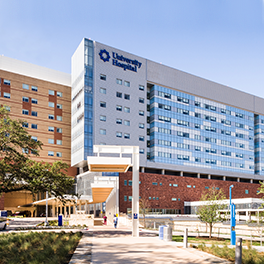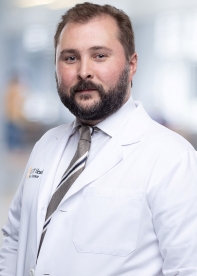-
Texas Liver Tumor Center
4502 Medical Drive210-743-4306
Transplant Clinic, Rio Tower, Level 2
San Antonio,TX 78229
Metabolic dysfunction-associate steatotic liver disease (MASLD), formerly known as nonalcoholic fatty liver disease (NAFLD) is a condition in which excess fat accumulates in the liver.
MASLD is one of the most common types of liver disease in both adults and adolescents and is also one of the leading causes of hepatocellular carcinoma (HCC), the most common primary liver cancer.
Causes of MASLD
While a healthy liver contains a small amount of fat (up to 5%), a higher concentration can lead to complications, including liver inflammation, liver cell injury, and eventually the development of liver cirrhosis. Fatty liver disease also can be linked to other serious health concerns such as cardiovascular disease.
Risk Factors for MASLD
Excess fat can build up in the liver if the body has too much fat or cannot break it down quickly enough. The main risk factors for MASLD include:
- Obesity
- Type 2 diabetes
- Hyperlipidemia (excess fat in the blood)
- Genetics, or inherited from a parent
When MASLD is detected early, it is possible to significantly reduce the risk of long-term complications.
Metabolic dysfunction-associated steatohepatitis (MASH) is the most severe form of MASLD and occurs when the excess fat in the liver is accompanied by liver inflammation and scarring over time. In more severe cases this condition can lead to cirrhosis, end stage liver disease and liver cancer.
There are two medications that have recently been FDA approved to treat this condition. Our liver specialists can screen you and determine if you qualify for treatment.
In addition, our liver specialists are involved in clinical trials studying cutting-edge therapies for MASH. You may qualify for one of these studies and can be screened to determine what the best treatment plan is for you.




